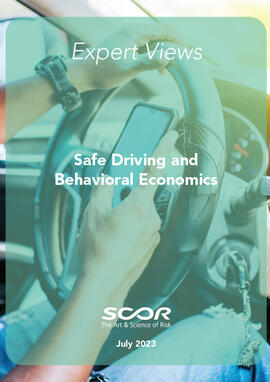
Covid-19 caused a surprise rise in road fatalities in many parts of the world, directly impacting insurance companies. The rapid increase in road traffic collisions that started during the later stage of the pandemic has become a serious global health, life, and business problem, causing over one million deaths per year worldwide.
How can we stop or reverse this negative trend? Historically, many efforts have been made to reduce traffic accidents, ranging from mandating seat belts to installing emergency braking systems. But the problem runs deep, unable to stop the rising number of accidents. What other approaches can be taken if the conventional methods are not stopping this global trend of rising road fatality?
It is time that insurance companies give this issue a fresh look and think differently. SCOR’s behavioral scientist suggests utilizing the latest technology and a new way of looking at human behavior - connected car insurance powered by telematics and behavioral science.
As telematics is about measuring and improving one specific human behavior—driving, applying behavioral science concepts and methodology will naturally contribute to increasing driving safety and the overall success of telematics programs.
In this article, the author discusses three behavioral science techniques that are the most relevant technics and principles for telematics and connected car insurance. Readers will learn each technique and deepen understanding of how behavioral science can help insurers analyze human behavior and develop new and practical solutions for reducing road fatality risks.
